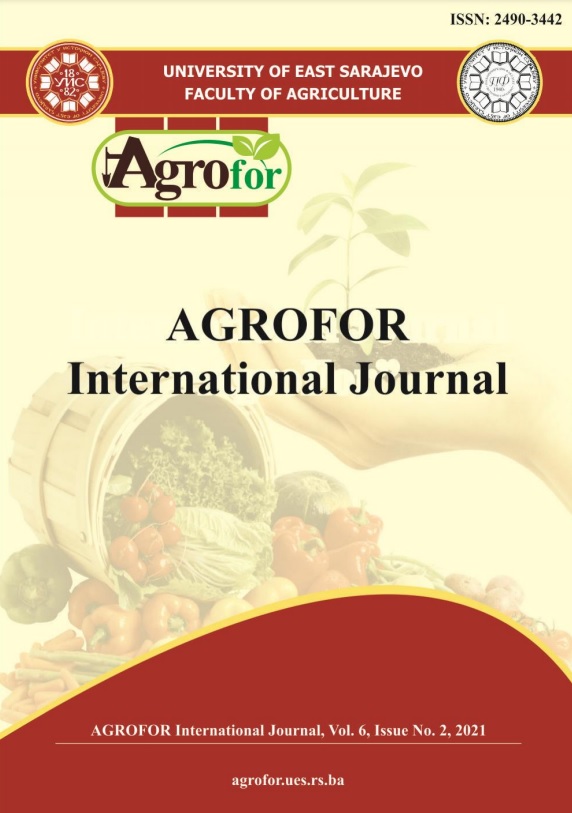ANALYSIS OF FACTORS AFFECTING MARKETING CHANNEL CHOICE BY SMALLHOLDER FARMERS IN AFGHANISTAN
DOI:
https://doi.org/10.7251/AGRENG2102005SAbstract
This study aimed to analyze factors affecting marketing channel choice by onion smallholder farmers in the Parwan province of Afghanistan. The study used a random sampling technique for data collection, both primary and secondary sources were used. Primary data were collected through face-to-face interviews from 104 onion small-scale farmers in three main districts of Parwan province producing a high quantity onions. Data were analyzed through descriptive statistics such as mean, standard deviation, minimum and maximum. Multinomial Logistic Regression model (MNL) was used to analyze factors affecting marketing channel choice of onion smallholder farmers in Parwan province. The result of the study revealed that farmers sold their products to three main channels, which were: brokers at farm-gate, traders, and direct sale to Kabul market. Over 60% percent of the respondents sold to brokers at farm-gate, while, the rest of the farmers sold to Kabul market and traders’ market channels accounted for 29.8% and 17.3% of total respondents, respectively. The multinomial logistic regression result indicated that farmers having a high level of education producing a high quantity of onion and having access to transportation facilities were more likely to sell to the Kabul market relative to the brokers' channel. Also, educated farmers producing a high quantity onions, and having access to information and storage facility were more likely to sell to traders rather than brokers. Moreover, the probability of choosing brokers increased when farmers had another source of income and faced long distances to market.
Keywords: Smallholder farmers, Marketing Choice, Value Chain, Afghanistan.

